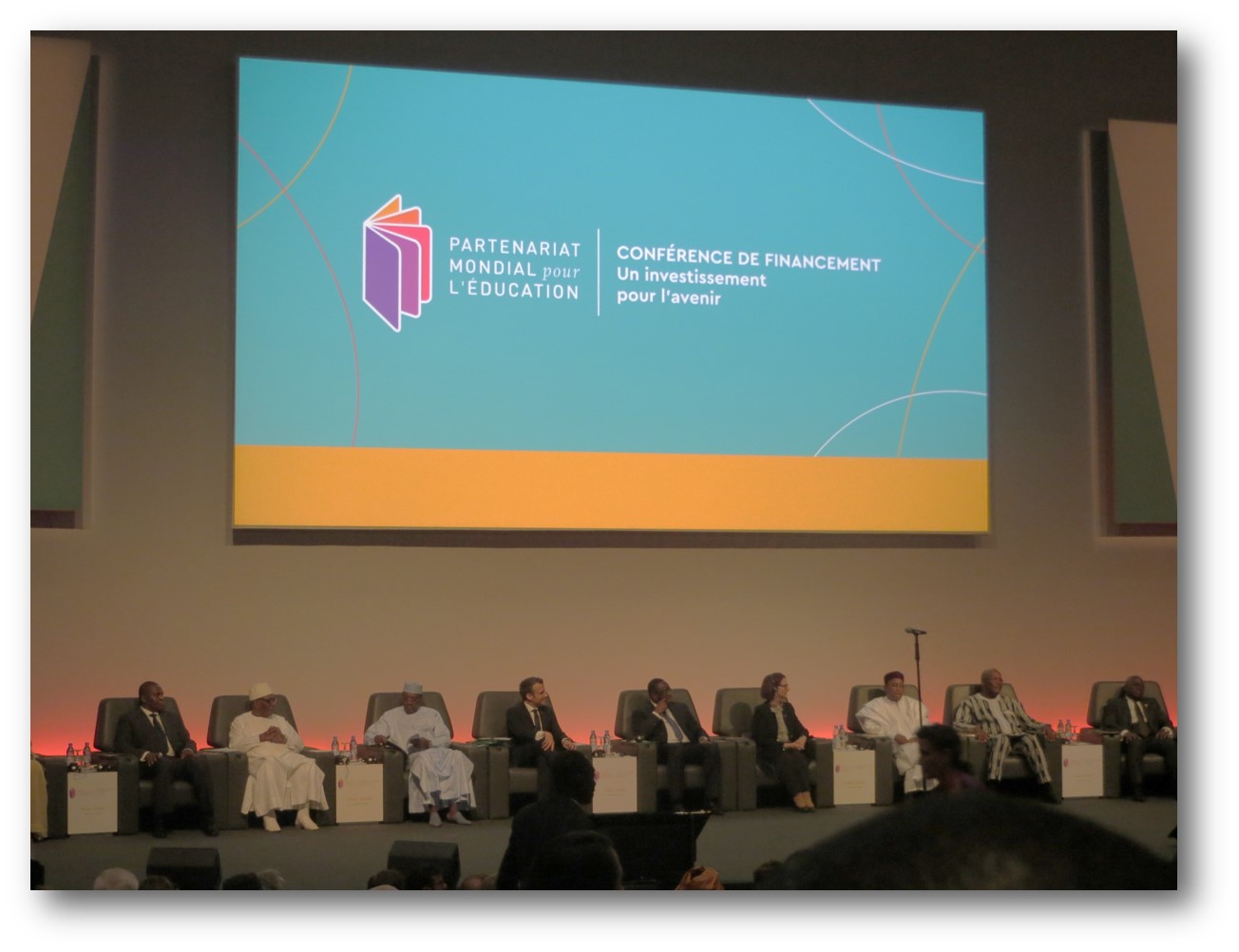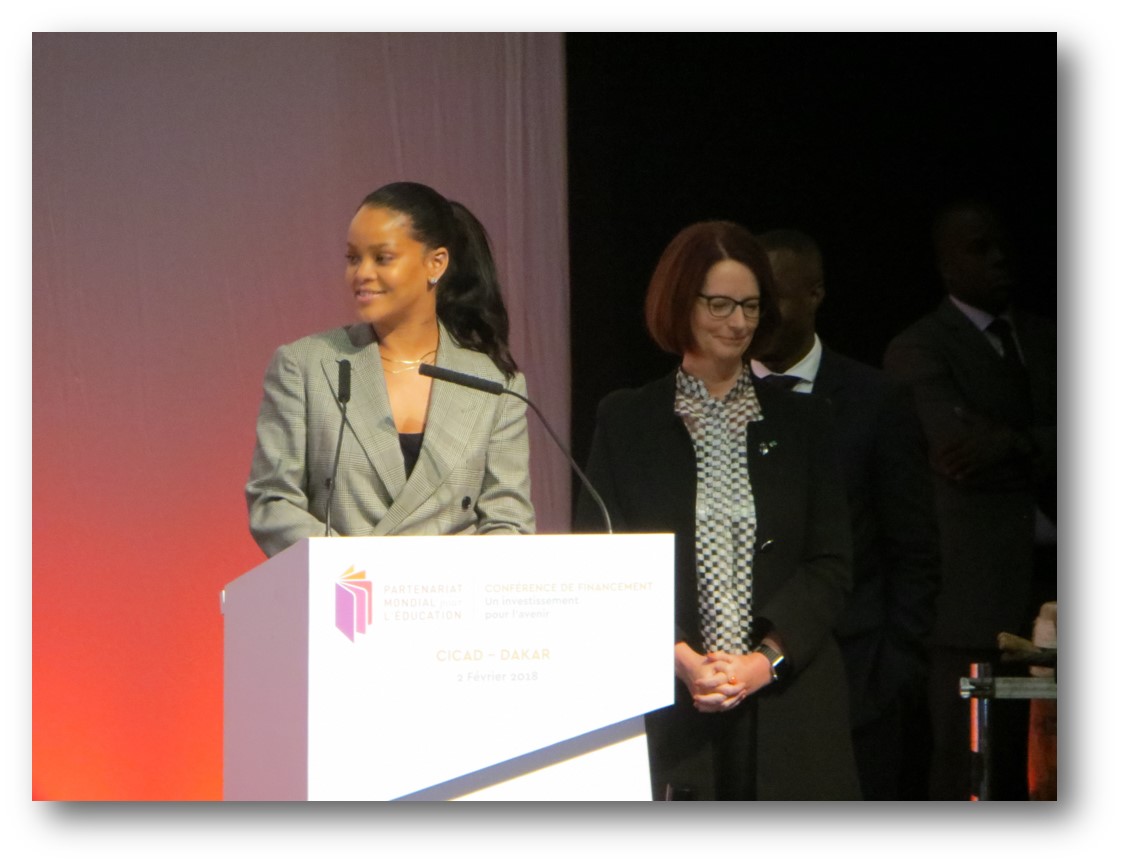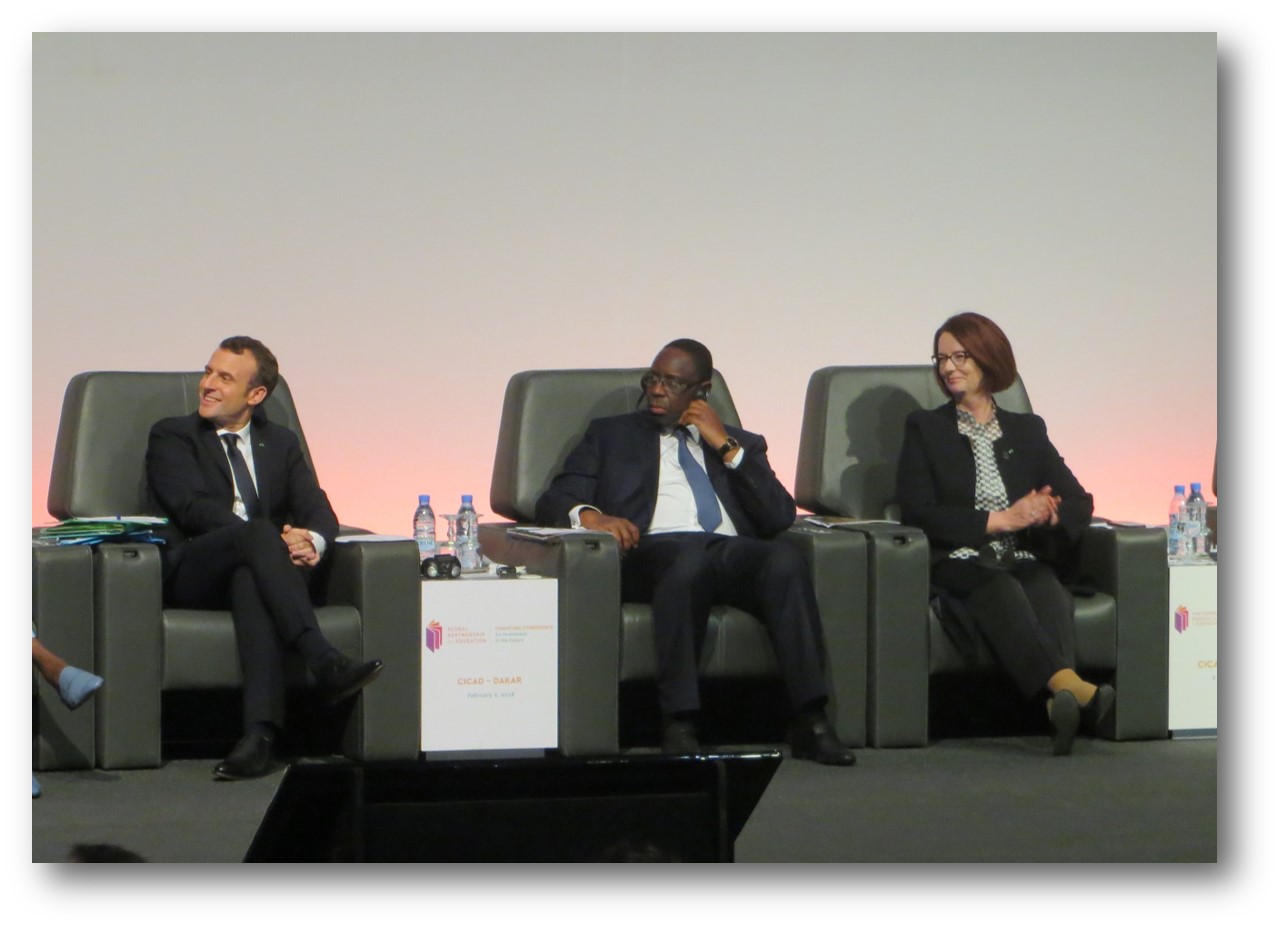The world comes together to support GPE, but still more needed from donors
Last week in Senegal, world leaders and advocates committed to working together until no child is left without a quality education. Fifty-three developing countries committed US$110 billion to support their own education systems while donors pledged US$2.3 billion to the Global Partnership for Education.
With developing countries stepping up to the challenge, donor countries still have an opportunity — and a strong impetus — to put GPE one step closer to allocating US$2 billion a year by 2020, as called for by the International Commission on Financing Global Education Opportunity. The United States, for example, sent a representative to Dakar but did not make commitments beyond what Congress had already appropriated for GPE. It is now up to the U.S. Congress to strongly increase funding to GPE through upcoming appropriations. Click here for RESULTS’ reaction to the U.S. pledge.
What happened in Dakar

Audrey Azoulay, Director-General of UNESCO, began the day by stating that as a society we have a common future, and therefore the challenge of having 260 million children out of school is our global responsibility as well. She pointed to collective intelligence, collective action, and partnership as the way forward to remedy this situation.
Youth advocates presented a Youth Solidarity Statement in which they urged leaders to include youth in decision-making for education plans and indicators that measure inclusivity in education.
Julia Gillard and Alice Albright thanked civil society for putting in muscle and always being willing to campaign in support of education for all.

Jim Kim, president of the World Bank, explained that the World Bank’s previous policy recommending achieving economic growth as a condition to investing in education was wrong. He highlighted that education investments need to happen now and cannot wait for economic prosperity.
Rihanna closed the day by stating, “We have accomplished a lot today, but we won’t stop until every child has received an education.”
Getting closer to US$2 billion per year by 2020
The European Commission became the largest donor to GPE — surpassing the UK — with a pledge of US$337.5 million followed by Norway with a US$260 million pledge. Norway also committed to helping any developing country seeking to expand its tax base, which could create an unprecedented increase in domestic resources for education.
The UK pledged US$317 million with a cap of 15 percent of total GPE funding and 30 percent of the pledge conditioned on results. The UK also announced its new education policy focused on teachers, learning, and most marginalized children. The UK representative closed her intervention by stating, “If every child can’t reach their full potential, then humanity never will.” Civil society, including our RESULTS UK colleagues, are disappointed that the UK’s commitment to GPE did not reach US$500 million as called for and encourages the UK to remove its conditions and burden share cap.

Sweden, Switzerland, and Denmark increased their contributions. Ireland doubled its contribution, Italy tripled its commitment, and Canada doubled its pledge to CAD$180 million, including targeted funding for girls. RESULTS applauds Canada’s commitment and hopes its leadership continues in the G7.

A few countries were joined or re-joined GPE: Dubai joined by pledging US$100 million, China was also welcomed into the partnership although their representative did not make a commitment yet, and Spain rejoined GPE. Finally, Australia pledged AUD$90 million. This pledge is far short from civil society’s ask of AUD$200 million. Time is not up yet for Australia to increase its pledge and restore its leadership in GPE.

France explained that their most important commitment is to fulfill the right to education for every child. President Macron cited GPE as an example of efficiency and working in partnership before pledging US$200 million to GPE.
Finally, Senegal became the first developing country partner to also be a GPE donor by pledging US$2 million to the GPE fund. President Macky Sall looked beyond his country’s borders and referred to education as a commitment to invest in humanity’s progress.

The big winners
The winners of the day were developing countries. By raising US$110 billion together, they made it clear that they have in themselves the key to fulfill their own sustainable development. As President of Ghana, Nana Akufo-Addo put it, “We live in the richest continent in the world, but we have the poorest living conditions. This paradox can only be fixed with education.”
The big winners of the day, however, were children everywhere. Thanks to commitments made in Dakar and the hard work ahead to provide quality education for all, today’s children will be able to enjoy a tomorrow in which society is more equitable and everyone’s right to education is fulfilled.
With that goal in mind, it is clear that even if the GPE Financing Conference is over, our work is far from done.